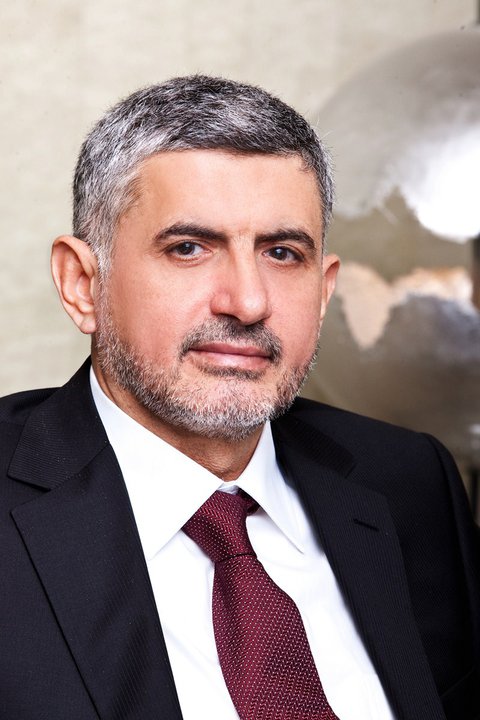NEW YORK: Contrary to popular opinion, fear is not inherently a negative sentiment. The object of our fears may be negative (hence the confusion), but the emotion itself is indispensable.
Fear allows us to be mindful of real dangers that exist in the world. Without it, our ancestors wouldn’t have been able to tell the difference between a rabbit and a tiger and we wouldn’t be here today.
But fear can also be destructive. Politically, fear drives people to form xenophobic tribes, to become unquestioning automatons, and to hand off power to authoritarian leaders. From time immemorial, politicians have used fear in order to manipulate the masses.
In the conflict between Palestinians and Israelis, fear plays a significant role.
In its positive dimension it inspires people to fight against injustice. People become peacemakers because they fear their children will inherit the same heartbreaking and tragic world in which they live. In its negative dimension, fear perpetuates and exacerbates the conflict.
An obvious example of negative fear would be fear of the enemy – fear of the monster (imagined or real) that conflict creates. Fear of the enemy makes violent encounters rational, and non-violent encounters difficult and charged with mistrust.
Yet there is another type of fear that is less recognized but equally problematic: fear of the friend.
Stemming from the danger of being rejected or ostracized by one’s own group, fear of the friend is the fear of standing up for your principles. It manifests itself in blind conformity and/or an inability to express one’s opinion against the norms of the group. Sociologists call this phenomenon “groupthink : when a cohesive group seeks harmony at the expense of critical and constructive thought.
While Israelis and Palestinians are known to be opinionated, uniformity of thought generally reigns over individuality during times of conflict.
Throughout the second Intifida, for example, pro-peace Israelis found it very difficult to criticize the government without facing ridicule and aggression from fellow countrymen. There was tremendous pressure to parrot the official explanation of what went wrong, and to rationalize away any evidence to the contrary.
Likewise, Palestinians found it almost impossible to criticize militant groups and their tactics without being viewed as sell-outs, traitors or collaborators – which often put people in harm’s way. During the recent war in Gaza, the same censoring impulses were in effect both in Israel and the Palestinian territories.
Fear of the friend is a natural consequence of our need to belong to a group.
Yet it often leads to faulty reasoning, dubious moral judgments and bad decisions. By suppressing constructive dissent – an invaluable tool during times of crises – fear of the friend tends to be harmful to peacemaking.
How to respond?
In dealing with fear of the friend, it is best to encourage individuals (especially the young) to think for themselves and speak their minds. It’s also imperative to expose individuals to examples of moral courage – the antidote to groupthink – and encourage them to practice it. We must figure out how best to do this in our homes, schools, public squares, synagogues and mosques.
An inspiring example of moral courage recently came to me from a friend’s 12-year-old daughter (who will be identified as Noa).
In a middle school for the arts in Israel, a 7th grade science teacher decided to end the year with a spontaneous lecture on why Jews and Arabs could never peacefully coexist. After he spoke, Noa raised her hand and bravely stated that she has a different opinion -that Jews and Arabs can and must live in peace. A long and loud argument ensued over the nature of Arab/Muslim culture and who rightfully belongs in the country. The teacher and a number of students vociferously claimed that Arab culture is antithetical to Western civilization and that the Jews had an overriding historical right to the land. Yet my friend’s daughter did not relent. She pressed her case and even managed to awaken the conscience of two other students. The argument ended with an irate teacher recommending his irreverent student (and her supporters) to read some history before speaking.
When asked what compelled her to speak up against an authority figure and a number of classmates, Noa explained: “I thought what he was saying and doing was wrong. I do not accept that a teacher can say such a negative thing and influence the students. When people hear negative things like this they learn to become negative as well.
Noa responded to her teacher and fellow classmates because she realized the consequence of not doing so. Her conscience obligated her to boldly speak truth to power. Noa’s action reminds us that to possess moral courage is not to be fearless, but rather, as the Muslim intellectual Irshad Manji once noted, it is to know that “some things are more important than fear .
Roi Ben-Yehuda is an Israeli writer based in the United States. He is a regular contributor to Ha’aretz and France 24. You can read his blog, RoiWord, at: http://roiword.wordpress.com. This article is part of a special series on the impact of fear in the Arab-Israeli conflict written for the Common Ground News Service (CGNews).


